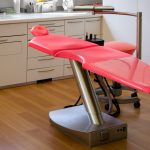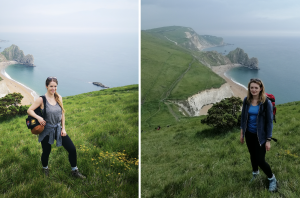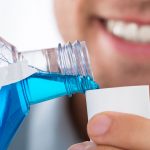Exquisite dining and entertainment from Lucy Porter were features of this year’s Dental Awards 2019 & Gala Dinner, which attracted a vast number of entries.
The winners of the 2019 Dental Awards can finally been revealed, after months of anticipation over who will be crowned winner of each category.
Held on May 17 at the Hilton Birmingham Metropole, the evening began with speeches from Dr Nigel Carter OBE, Chief Executive of the Oral Health Foundation, as well as Holly Payne, the editor of The Probe.
Shortly after, Amanda Harbrow-Harris took to the stage to be crowned winner of the Hygienist category, while Dental Therapist of the Year went to Julie Ellis.
Practice Manager of the year went to Ingrid Perry, winner of the Website and Digital Campaign went to Brynhyfryd Dental, Siana Garstang received the award for Dental Nurse of the Year and Receptionist of the Year was awarded to Sophie Scudder, for her hard work involving the care coordination of patients.
Best Outreach or Charity Initiative went to Smile Together, while Torrs Park Dental won the award for National Smile Month.
Coming top place in a vast number of entries was Bishopsgate Dental for Dental Team of the Year South, while for North & Central, Honour Health claimed the top position. Bishopsgate was then announced to be the overall award for the National Dental Team of the Year category.
Dental Practice of the Year South was awarded to The Implant Centre, while for Central, Imogen Dental took the award. Overall, National Dental Practice of the Year went to The Implant Centre.
A short interval took place halfway through the awards ceremony, whereupon wine and a lavish three-course meal was served to attendees.
Comedian Lucy Porter returned to the stage after her initial appearance at the beginning of the night to a round of applause from the audience.
With the ceremony back in full swing, Young Dentist of the Year for North & Central was awarded to Domingos Mamede, while Kreena Patel took the award for the South, then going onto win the overall category of National Young Dentist of the Year.
Boasting a bright, modern practice with all the features designed to appeal to patients is Glenhaven Dental Care, which went on to receive the award for Best Practice Design Interior.
Coming towards the end of the ceremony, the highly anticipated award for Dentist of the Year went to Patrik Zachrisson for his exceptional dedication and hard work.
The Outstanding Achievement Award marked the final category in the award ceremony and was awarded to Janine Brooks MBE.
Janine was presented with her award by Catherine Rutland, Head of Professional Support Services, who delivered a speech that captured the impact of Janine’s work in the profession based on her own experience of working alongside Janine. Catherine emphasised Janine’s passion for dentistry and commitment to mentoring.
Handing out the awards on the night were delegates from those sponsoring the awards, which included BA International, Carestream Dental, Colgate, Coltene, Dental Elite, Geistlich, Simplyhealth Professionals, Sparkle and Waterpik.
A team of beatboxers provided surprise entertainment for the audience, before music and dancing ensued which lasted into the small hours.
The Dental Awards is the industry’s longest-running and most prestigious award event. This year marks the 20th anniversary of the awards, which each year attracts numerous entries from those working in dentistry. Running alongside the Dentistry Show, each category is judged by an expert panel of judges.
Highly commended were:
Best National Smile Month Event – Bramley Dental Practice, Rotherham Oral Health Improvement Group (ROHIG)
Dentist of the Year – Gina Vega, Bishopsgate Dental Care
Young Dentist of the Year – South – Victoria Jephcote, Torrs Park Dental Practice
Young Dentist of the Year – North & Central – Indy Johal, Campbell Dental Practice and Isha Dhillon, Bhandal Dental Practice
Dental Therapist of the Year – Imogen Wood, Whitehouse Dental Clinic
Dental Hygienist of the Year – Gulab Singh, Wensleydale Dental Practice
Website & Digital Campaign of the Year – Elmfield House Dental Practice
Dental Nurse of the Year – Louise East, Essex Community Dental Service
Best Outreach or Charity Initiative – Well Connected, Plymouth
Dental Practice of the Year – South – Bishopsgate Dental Care
Dental Practice of the Year – North & Central –
Practice Manager of the Year – Louisa Dallinger, Reginald O’Neill Dental Care
Dental Team of the Year – South – Torrs Park Dental Practice
Dental Team of the Year – North & Central – Andrea Ubhi Dentistry
Dental Receptionist of the Year – Sarah Thornley, Oakley Road Dental Practice
Practice Design and Interior – High Trees Clinic
Thank you all for joining us on Friday night. To see a full array of images, see here – http://www.smilephotography.net/



















